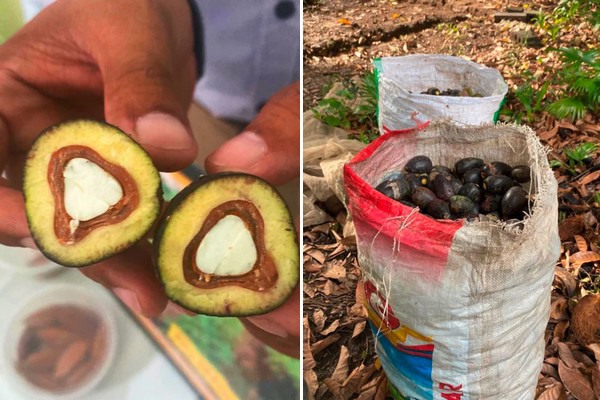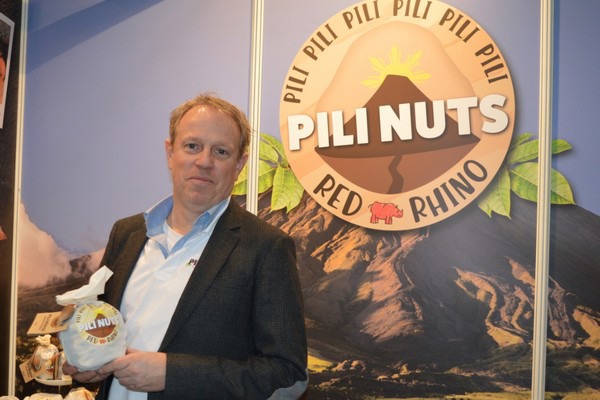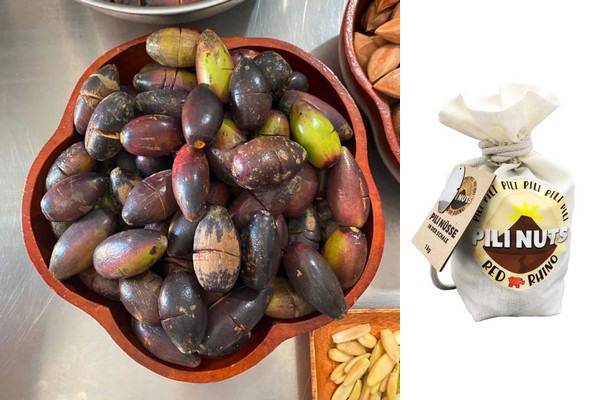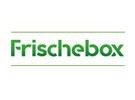With the completely unknown in Europe Philippine Pili nuts, German company Die Frischebox Ltd won second place at the Fruit Logistica Innovation Award (FLIA) in 2017. Despite a successful market launch, a recall and a mandatory Novel Food procedure by the European Commission put a spanner in the works. This led managing director André Wielink to the idea of importing and marketing the nut on his own. And with success: Just about a year after the relaunch, the nut is not only listed with Edeka Südwest and Edeka Foodservice but also receives numerous inquiries from different countries, says Wielink in an interview.

Pili nuts are rich in proteins and fats and an excellent source of energy. Their energy content surpasses that of macadamia nuts, Brazil nuts, and walnuts.
Pili nuts thrive exclusively in the Philippine region of Bicol and are - apart from small export quantities for the British and US market - mainly found in the local market. Wielink: "It is essentially a product that is collected in the wild, which means that there is no commercial or industrialized cultivation. Nonetheless, the Philippine government has now recognized that exporting the nut to Europe is not only an interesting source of income but also a way to keep young people in rural areas." The Pili nut can be harvested every three months (a total of four times per year), with the harvest between July and September usually yielding the highest returns. Currently, the 2023 harvest is being traded. "Since July last year, we have shipped quantities that we are now gradually marketing," Wielink explains.

André Wielink presented the Pili nuts at this year's Fruit Logistica in Berlin. The nut is generating keen interest both within and outside the DACH region.
In the course of the presentation at Fruit Logistica in February 2024, the response was overwhelming, Wielink continues. "We have inquiries from around 30 countries, including South Africa, Kuwait, but also Eastern Europe and the Netherlands. In German retail, we work with a No-Plastic concept: In regular retail, the nuts are offered in 300 and 500-gram bags including a special nutcracker, while in the foodservice channel, especially the 1kg units are well received. In addition, we have also developed our own display, as it is a completely unknown product in Europe with a corresponding need for explanation. This involves not only background information about the country of origin but also about the nutrient density, which is significantly higher compared to other nuts."
 At Red Rhino Pili-Nuts, Pili nuts are sold with a small notch on the outside that makes opening them - with the included nut cracker - easier.
At Red Rhino Pili-Nuts, Pili nuts are sold with a small notch on the outside that makes opening them - with the included nut cracker - easier.
Die Frischebox, with locations in Rheinstetten and Bühl, was founded in 2011 and has over the years developed into a recognized import and trading company for a complete range of nuts and dried fruits. Almost the entire nut assortment (including Pili nuts) is marketed under the own brand Red Rhino. "Thus, with the Philippine Pili nuts, we have not only created a unique premium nut concept but also a good addition to our existing range," Wielink concludes.
Images: Die Frischebox GmbH
For more information:
André Wielink
Die Frischebox GmbH
Gewerbering 38 
76287 Rheinstetten
Tel. +49 7242 9699022
Fax +49 7242 9699049
[email protected]
www.diefrischebox.de










